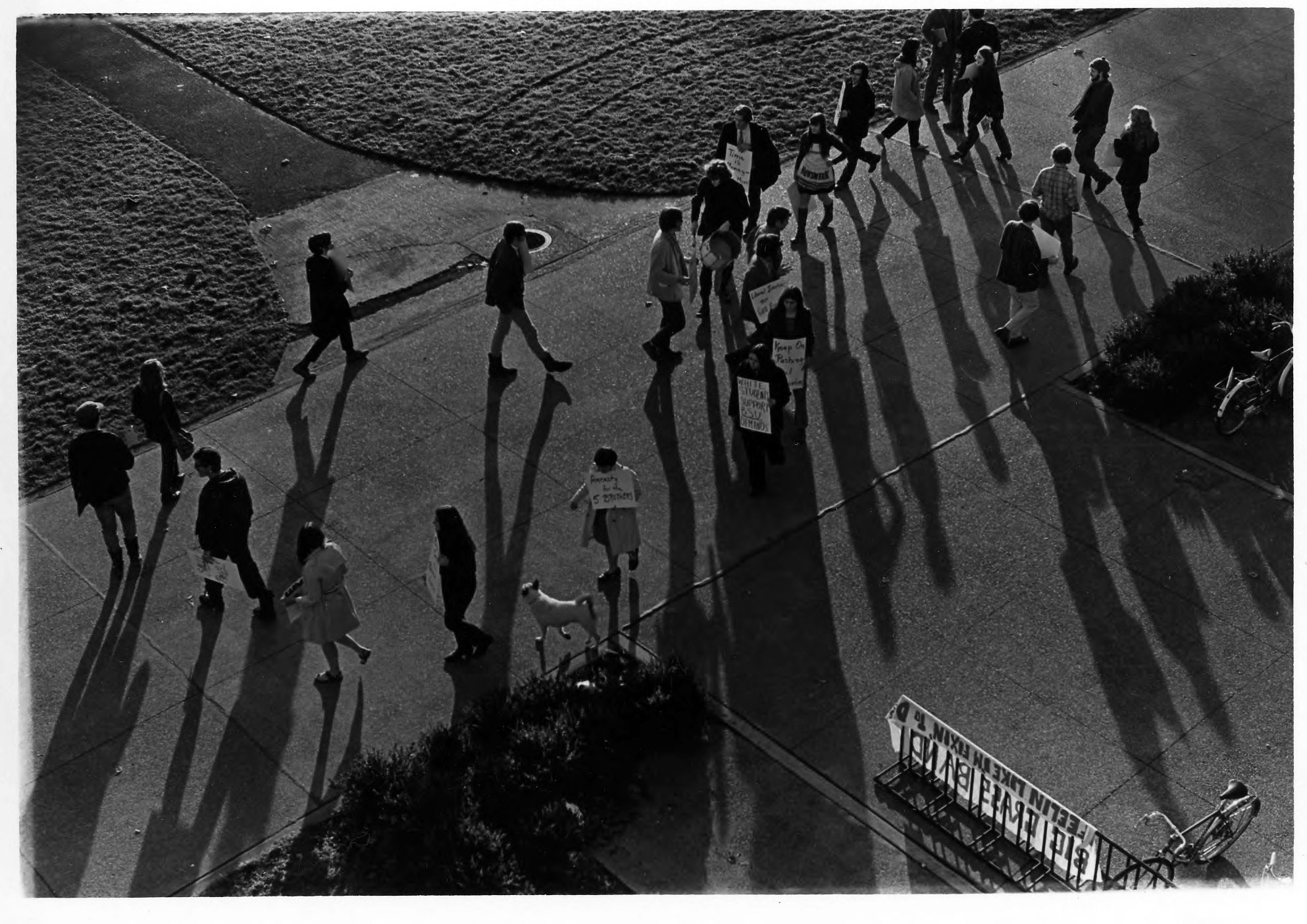The Transformation Of Hum 110: A Remembrance
A Reed philosophy grad recalls the debate over Hum 110 that took place in 1969.
Given the transformation and expansion of Humanities 110, which I for my part welcome and hope will continue, I want to share something which I think has historical and contemporary pertinence.
I arrived at Reed as a first-year student in 1969. During my first week on campus, I heard about the struggle the previous year on the part of Black students to establish a Black Studies Department and to expand Hum 110. I learned about this at a weekend party held at the home of some students in the Black Student Union. Subsequently, I would learn more both from Prof. John Tomsich [1], one of the few professors who came out in support of the students' struggle, and from Prof. William McClendon, who became the chair of the short-lived Black Studies Department (which was dismantled in 1975).
A few weeks into the semester, the Quest published a letter by a third-year student. I didn't know him, but he argued vehemently against any change in the Hum 110 syllabus. I thought his argument dogmatic, threadbare, and politically and intellectually reactionary. His was an automatic rejection.
The next morning when I was approaching Commons to take breakfast, I saw a huge roll of butcher paper affixed to the wall just to the left of the entry doors to Commons. At the top of the banner, in very large letters, was written the name of the student who had authored the letter and this was followed by the four word exclamation, “Is Full Of…!” (I remember the student’s name but since he is not the positive presence in this narration, there is no reason to give his name).
Below the title of the banner there were a number of columns stretching vertically from left to right carrying a sustained and incisive critique of the letter and a superb argument for expanding and transforming Hum 110.
The author was a Black transfer student who lived in the Griffin side of McKinley-Griffin (I lived in the McKinley side). I had gotten to know him a bit. I admired him and had great respect for him; he was more intellectually sophisticated than I was at the time. His name might have been Steve but I am not certain of that (I either never knew or cannot recall his last name).
Yes, I was impressed with him and admired the critique and advocacy he posted that morning in dramatic fashion. And now, fifty years later, what he and many other students were advocating has in a certain fashion found an initial and hopefully not a final instantiation, although it should not have taken fifty nor twenty-five nor even two years.
Over the years I have smiled with affection thinking of him and what he did that morning and I am grateful to him for his action and for the actions of students in the years prior to my arrival and subsequent to my graduation.
Steve Light is a philosopher and poet. His most recent books are The Emergence of Happiness and Against Middle Passages. He is the translator of Jean Grenier’s Islands: Lyrical Essays.
[1] Tomsich was a good person and a superb teacher, one of the best I had at Reed along with Louis Janson in the French Department, Kaspar Locher in Comparative Literature, Robert Paul in Philosophy (who despite my opposition to Analytic Philosophy was always amicable and just), and above all the magnificent Jerry Barta, chair of the Physical Education Department and my basketball coach at Reed, an absolutely wonderful person and friend, indeed a very great and splendid human being whom I will always think of with the warmest and happiest kind of affection. I took Tomsich’s American Studies class the first semester of my second year and I wrote a very long paper on the movement to establish Black Studies Departments nationwide. In fact, I continued working on the paper through finals week and the following week and only turned it on December 23rd, taking a flight home the next day. And I remember with gratitude that my friends Howard Williamson, Sam Rollins, and Damien Gossett allowed me to stay at their house during the week following finals week (even though they had all already flown back home for vacation) so that I could finish the paper. I had moved out of the house in which I had been living that semester, intending to find another place at the beginning of second semester.
More articles about Reed in the 1960s:
Defending the Citadel. In the late 1960s, Reed was embroiled in an intense debate over the core curriculum. The struggle polarized the campus, split the faculty, and shaped the college’s identity for decades to come.
A Small Insurrection, a Great Divide
In 1968 Reed’s Black Student Union barricaded the president’s office. In the end, the highest wall wasn’t built between the black students and the college, but between two bitterly opposed groups of the faculty.
Tags: Alumni, Reed History
